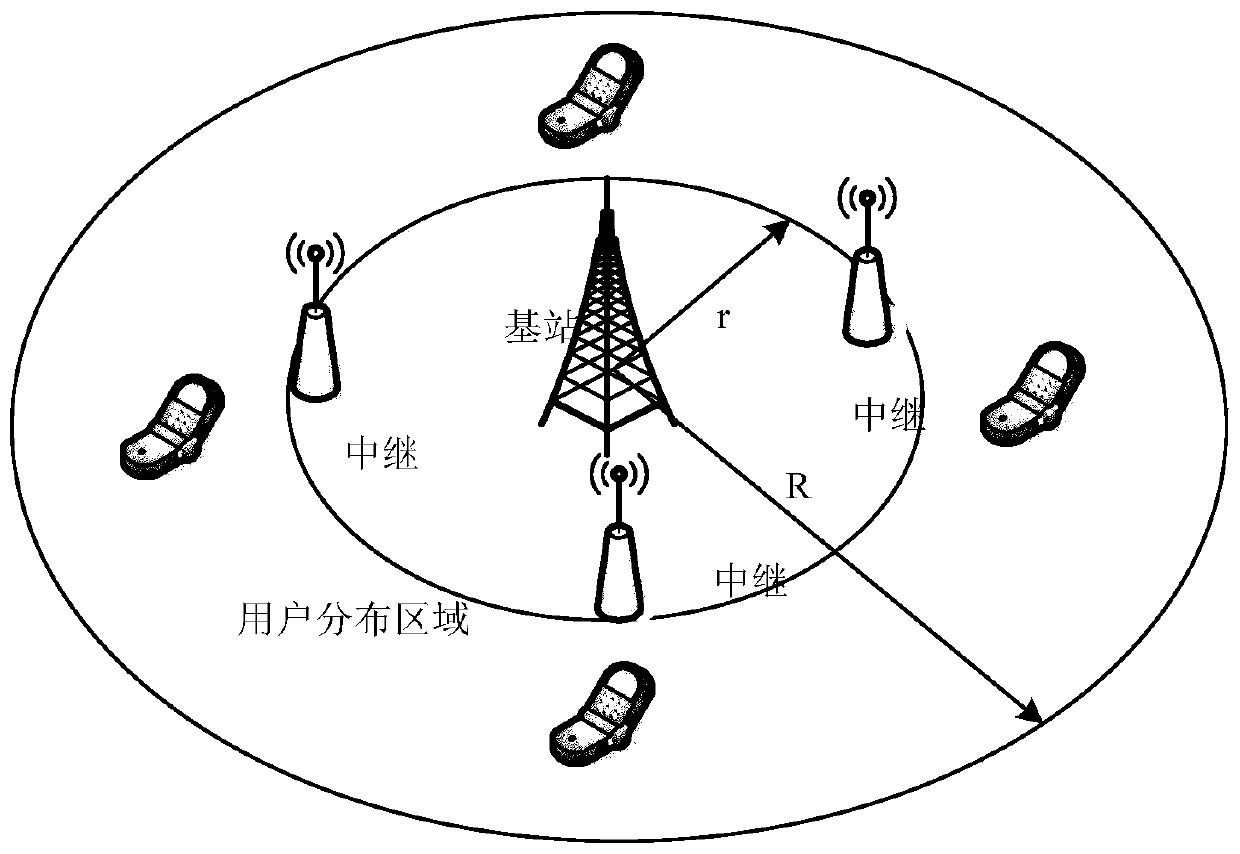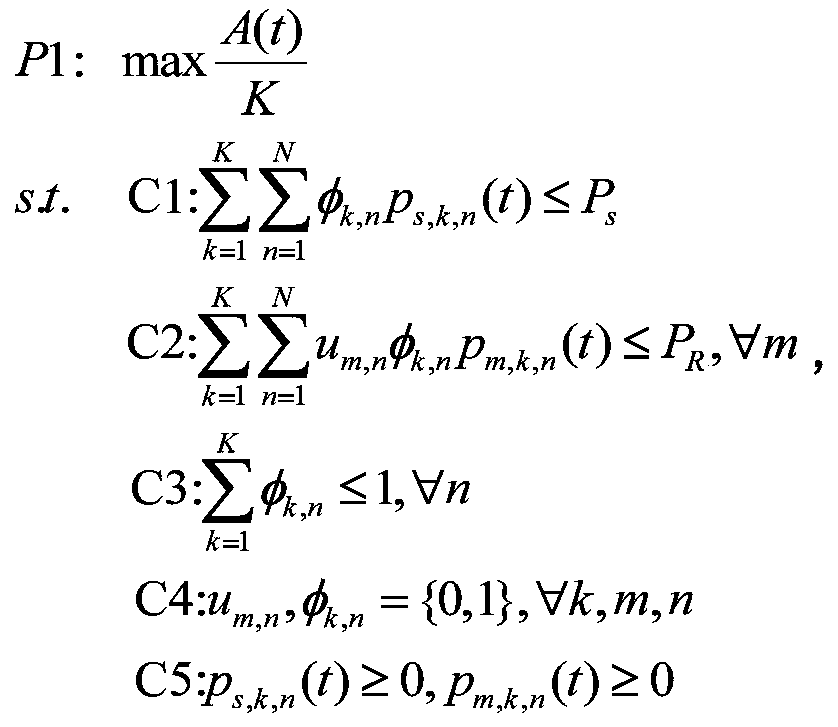A Relay Cooperative Based Energy Efficiency Optimization Method for Cellular Networks
A technology of energy efficiency and optimization methods, applied in network planning, energy consumption reduction, advanced technology, etc., can solve problems such as performance improvement that is not fully considered
- Summary
- Abstract
- Description
- Claims
- Application Information
AI Technical Summary
Problems solved by technology
Method used
Image
Examples
Embodiment 1
[0099] A method for optimizing energy efficiency of a cellular network based on relay cooperation, comprising the following steps:
[0100] Step 1: Build a system model;
[0101] The present invention is aimed at a special application scene, comes from practical application, and the scene setting is meticulous and reasonable, and has practical guiding significance. The system structure of OFDMA cells with multiple relays and multiple users is as follows: figure 1 As shown, the radius of the cell is set as R, and the cell is approximated as a circle for the convenience of analyzing the problem. The base station is fixed at the center of the circle, and M relays are evenly distributed on the ring with r as the radius (r
Embodiment 2
[0144] On the basis of the first embodiment, the present invention is further improved, in order to reduce the computational complexity, the actual engineering application is used. The solution of the optimization problem P1 in step 3 may adopt a suboptimal method to obtain the power allocation under the direct link, including:
[0145] In this embodiment, with the goal of maximizing energy efficiency, the power p transmitted by the base station to user k through carrier n under the direct link is studied s,k,n (t). It is not difficult to find that formula (6) is a strict Gaussian concave function. Then for user k, the base station transmit power p of each carrier under the direct link s,k,n (t) satisfy:
[0146]
[0147] Then by substituting formula (2) into formula (7) and for p s,k,n (t) derivation can be obtained:
[0148]
[0149] where φ k,n = 1 and u m,n = 0 means that carrier n is allocated to user k and carrier n is sent to user through direct link. From...
Embodiment 3
[0152] On the basis of Embodiment 1 and Embodiment 2, the present invention is further improved, in order to reduce the computational complexity and utilize actual engineering applications. The solution of the optimization problem P1 in step 3 can adopt a suboptimal method to obtain the joint power allocation under the relay link, including:
[0153] Consider the transmit power p of the base station under the relay link s,m.n (t) and relay transmit power p m,k,n The joint power optimal allocation of (t) is a very difficult problem. First, for a trunk link, then u m,n =1. Put formula (6) and formula (7) into formula (9) to get:
[0154]
[0155] In order to obtain formula (4)r in the relay link m,k,n The maximum value of (t), then according to the knowledge of information theory, it can be known that must and equal. Then the rate r at which the relay link download wave n is sent to the user through the relay m m,k,n (t) can be transformed into which is:
[0156...
PUM
 Login to View More
Login to View More Abstract
Description
Claims
Application Information
 Login to View More
Login to View More - R&D
- Intellectual Property
- Life Sciences
- Materials
- Tech Scout
- Unparalleled Data Quality
- Higher Quality Content
- 60% Fewer Hallucinations
Browse by: Latest US Patents, China's latest patents, Technical Efficacy Thesaurus, Application Domain, Technology Topic, Popular Technical Reports.
© 2025 PatSnap. All rights reserved.Legal|Privacy policy|Modern Slavery Act Transparency Statement|Sitemap|About US| Contact US: help@patsnap.com



